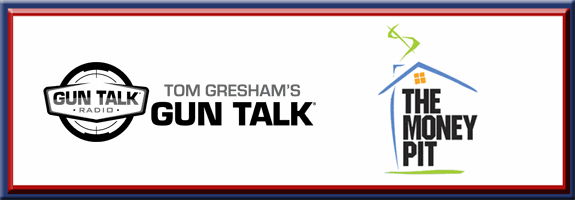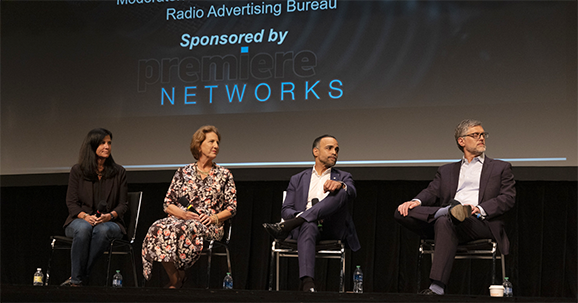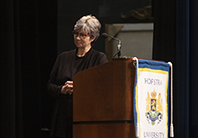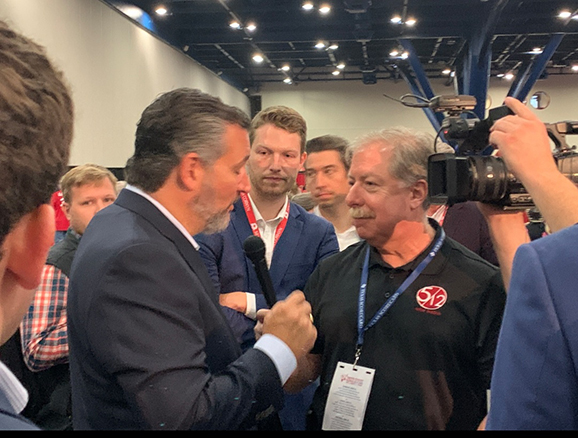By Michael Berry
Host, The Michael Berry Show
KTRH, Houston – iHeartRadio
Independent Syndication
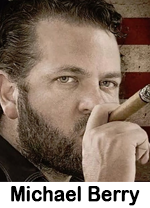 Growing up in a small town, “word of mouth” was the most powerful form of advertising. It could make – or break – a business. Malcolm Gladwell’s important Tipping Point book explained that movements, pandemics, and other things that “catch on” do so because of the influence of “connectors” – people who are asked for their opinion. Today, the media world likes to call them “influencers.”
Growing up in a small town, “word of mouth” was the most powerful form of advertising. It could make – or break – a business. Malcolm Gladwell’s important Tipping Point book explained that movements, pandemics, and other things that “catch on” do so because of the influence of “connectors” – people who are asked for their opinion. Today, the media world likes to call them “influencers.”
For 17 years, I’ve entertained listeners on the radio and on podcast. Our show has built what many in the industry tell me is an impressive business model. Like Gladwell, I created our own vocabulary and I am strident in enforcing the use of it. Because words matter. I explain to companies that they are our “sponsors,” not “advertisers.” I explain that they put their name behind our show, just as I do for them. In a commercial break stop-set that will be several “commercials” for “advertisers,” but only a couple of my “endorsements.” I don’t speak for a company unless I believe in what they do and how they do it. Likewise, I encourage listeners to send me feedback on their experience with my show’s sponsors. I forward those to the sponsors, either with a request that they address the shortcoming in the service or an attaboy for a job well done.
Listeners tune in to radio, particularly talk radio, to hear the opinions of the host. The host’s opinion matters. If he shares his opinion on movies he likes, foods he enjoys, political candidates he supports, that opinion can affect what the audience does. It is also true that – if his recommendation is trusted by the listener – it can affect the choices the audience makes when they buy something or hire someone to perform a service. But it has to be an “endorsement.”
The radio industry, for many, many years, failed to recognize the value and power of an endorsement. Sellers would sell advertising to clients and get the on-air talent to read the copy points the client (or agency) wrote. Often listlessly, just reading. That is not an endorsement. It is not a host suggesting to his audience where he would personally buy a new door for his home, or take his wife for dinner. If, however, the “read” (a term that reflects that the host is simply reading words someone else wrote) were instead an endorsement, he wouldn’t need all those details. Instead, with just the name of the company, and the owner, and the phone number, as well as what category they are in, he would be able to speak for 30 seconds about why that business is special, why he would (and hopefully has already) use them.
An endorsement is a stamp of approval. It says you believe in someone or something. If an endorsement is really an endorsement, it doesn’t need new copy points to be “freshened up.” It doesn’t include discount offers, seasonal sales, “get in quick before they run out” scares, or other silly tricks Americans long ago learned to ignore. Using that language kills credibility. If I ask you where I should buy my car, and you have a dealer you believe in, you’ll refer me to them, and, if you really like them, call them yourself and ask them to take care of me. “Hook me up” as the kids say. I’m not going anywhere else after an endorsement like that.
Radio (and podcast) has a big future, because of the connection audiences have with hosts. Why abuse that connection? Why cheapen it? Sales reps should understand that and make it part of their pitch. My best sales reps literally dial up companies in industries I identify and start with the question, “Do you listen to The Michael Berry Show?” If the answer is no, I don’t want them as sponsors. I want folks who understand why I’m controversial, why my audience listeners, what my values are.
Radio and podcast’s future is dependent on a sound business model that understands what makes us special, unique, and better than other forms of media.
Here is my list of suggestions to sellers and hosts, in hopes of facilitating better results for show sponsors:
— Sellers should never pitch a client without asking the talent first.
— Talent should not endorse a company without researching and approving them.
— Talent should tell sellers what sorts of things they WANT to endorse. Guns, cigars, home improvement, cars, medical. The best endorsement is something the talent will use himself. An avid gun owner is going to present a very compelling (and effective/profitable) endorsement for a gun range he visits once a week. Look at how weight loss sponsors have profited when the host follows their program and endorses it on air.
— If a sponsor isn’t committed to a yearlong relationship, don’t do it. It ruins credibility to change the endorsement inside the same category. Again, credibility is everything.
— Talent should develop personal relationships with sponsors. They can help listeners this way and the sponsors become show content.
— The value of talent to the station is far more than just ratings. Half my audience is 55+, so the 18-34 or 25-54 rating is less useful to me. But when show sponsors stay on air for 10 or more years, it is a ringing endorsement that what we do works. They vote with their dollars. The whole point of ratings was to show agencies how many people listened, in hopes that that vast listening audience would respond to the commercials they hear, thus monetizing the show, right? Why not go straight to the “dollars in (from the sponsor), dollars out (listeners spending money with sponsors)” model? Show sponsors who get tangible results from their partnership with talent don’t cancel their buy.
— Openly discuss how much money a talent brings into the station. The programming side of radio loves to talk about things that don’t generate dollars, while the sales side is often disconnected from the actual product they are selling. Fix that.
Michael Berry is a longtime, high-ranking member of the TALKERS Heavy Hundred. He’s heard daily on KTRH, Houston and across the country on his own independent network. Michael Berry can be emailed at michael@michaelberryshow.com.
Share this with your network
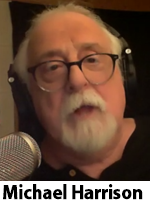 With the conclusion of 2025 at hand, we are entering the second half of the third decade of the 21st century. It will be a remarkably transitional period for the talk radio industry and its closely associated fields in talk media, as well as media-in-general.
With the conclusion of 2025 at hand, we are entering the second half of the third decade of the 21st century. It will be a remarkably transitional period for the talk radio industry and its closely associated fields in talk media, as well as media-in-general.


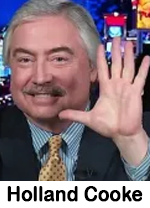 In an industry built on speed – breaking news, live liners, commercial deadlines – “pause” can feel like a luxury radio can’t afford. But Kevin Cashman’s The Pause Principle: Step Back to Lead Forward (Wiley) argues the opposite: pausing isn’t weakness, it’s a competitive advantage. For local radio leaders, the message couldn’t be timelier.
In an industry built on speed – breaking news, live liners, commercial deadlines – “pause” can feel like a luxury radio can’t afford. But Kevin Cashman’s The Pause Principle: Step Back to Lead Forward (Wiley) argues the opposite: pausing isn’t weakness, it’s a competitive advantage. For local radio leaders, the message couldn’t be timelier.
 Conventional industry wisdom: “If our morning star leaves, we’re dead. How could we replace them?”
Conventional industry wisdom: “If our morning star leaves, we’re dead. How could we replace them?”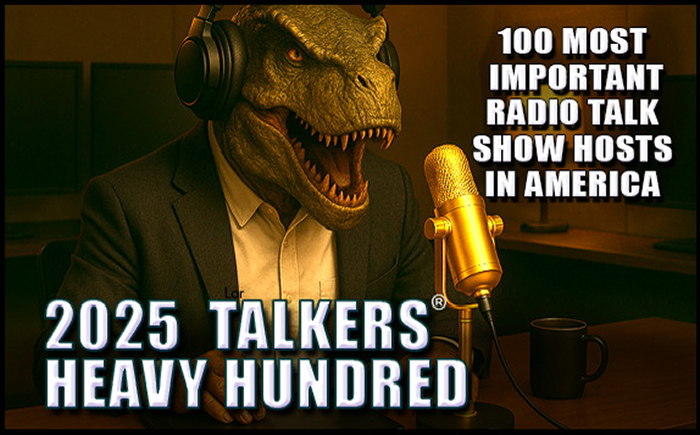
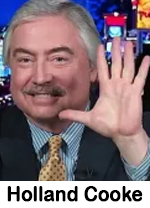 Got young local radio news talent? CONGRATULATIONS, for five reasons:
Got young local radio news talent? CONGRATULATIONS, for five reasons:
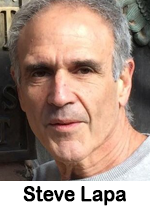 It’s complicated, this whole Federal Trade Commission ruling potentially banning the non-compete. Considering where you stand on the non-compete concept, it’s really all about evaluating the five “C” profile of your media business.
It’s complicated, this whole Federal Trade Commission ruling potentially banning the non-compete. Considering where you stand on the non-compete concept, it’s really all about evaluating the five “C” profile of your media business.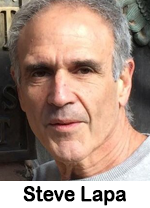 Time to thank the lawyers in the Donald Trump trial for once again proving beyond any doubt the power of talk radio.
Time to thank the lawyers in the Donald Trump trial for once again proving beyond any doubt the power of talk radio.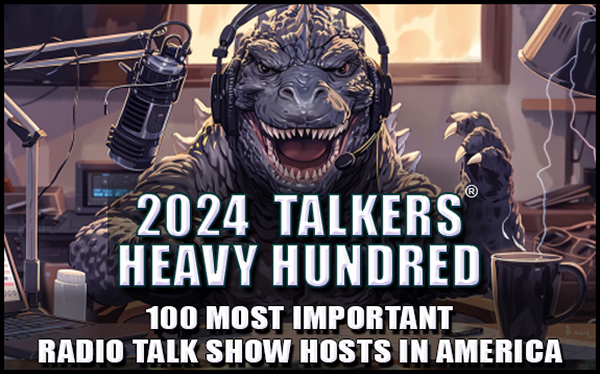
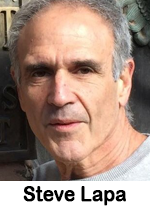 Have we passed the disappointment of 2023?
Have we passed the disappointment of 2023?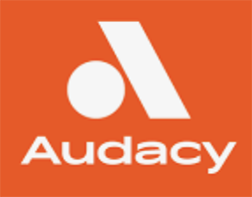 the Pennsylvania Association of Broadcasters. They include: WPHT, Philadelphia afternoon host Rich Zeoli and the morning show “Kayal & Company” both receiving 2024 Outstanding Local Radio Personality/Team honors, and news/talk KDKA-AM, Pittsburgh and all-news KYW-AM/FM, Philadelphia both receiving several programming honors. Recipients will celebrate at a luncheon in May.
the Pennsylvania Association of Broadcasters. They include: WPHT, Philadelphia afternoon host Rich Zeoli and the morning show “Kayal & Company” both receiving 2024 Outstanding Local Radio Personality/Team honors, and news/talk KDKA-AM, Pittsburgh and all-news KYW-AM/FM, Philadelphia both receiving several programming honors. Recipients will celebrate at a luncheon in May.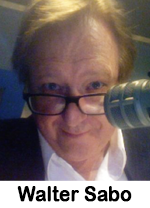 Research shows that readers to trade publications like articles with five bullet points. Here are my five bullet points for 2024. If these were to be deployed, you could be thriving by the end of the year. These actions would increase sales and audience share.
Research shows that readers to trade publications like articles with five bullet points. Here are my five bullet points for 2024. If these were to be deployed, you could be thriving by the end of the year. These actions would increase sales and audience share. “We’re continuing our growth trajectory every month and that’s directly correlated with the incredible OutKick talent that drives engaging content every day with personalities who are able to speak their minds.” OutKick also says it saw over 1 million social interactions on Facebook,Twitter, and Instagram, up 258% in February 2023 versus February 2022. Additionally, YouTube Video Views for OutKick attracted 7.1 million views – up 487% from the prior year, according to Shareable.
“We’re continuing our growth trajectory every month and that’s directly correlated with the incredible OutKick talent that drives engaging content every day with personalities who are able to speak their minds.” OutKick also says it saw over 1 million social interactions on Facebook,Twitter, and Instagram, up 258% in February 2023 versus February 2022. Additionally, YouTube Video Views for OutKick attracted 7.1 million views – up 487% from the prior year, according to Shareable.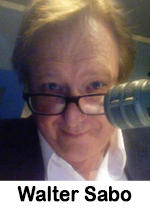 Talk show talent, program directors, show producers and broadcast business decision-makers represent the core readership of this publication. Sometimes we are so close to something that we fail to see it for what it really is. That is the case of the “talk show host” in American radio. Michael Harrison refers to the often-shameless targeting of audiences as “the daily dance of affirmation.” I view the daily process of radio talk show hosting at its very core, as “the daily dance of freedom.”
Talk show talent, program directors, show producers and broadcast business decision-makers represent the core readership of this publication. Sometimes we are so close to something that we fail to see it for what it really is. That is the case of the “talk show host” in American radio. Michael Harrison refers to the often-shameless targeting of audiences as “the daily dance of affirmation.” I view the daily process of radio talk show hosting at its very core, as “the daily dance of freedom.” It’s tough enough for radio talent to navigate stable careers in these days of consolidated station ownership, personnel cutbacks and drastic salary reductions – but the NAB’s newly stated stance on non-competes adds insult to injury and is out of step with the interests of beleaguered professionals still hanging on for dear life in the programming sector of this industry. I understand that the National Association of Broadcasters is at heart a lobbying group representing the interests of the medium’s ownership but, c’mon – non-competes really are of another era and egregiously unfair.
It’s tough enough for radio talent to navigate stable careers in these days of consolidated station ownership, personnel cutbacks and drastic salary reductions – but the NAB’s newly stated stance on non-competes adds insult to injury and is out of step with the interests of beleaguered professionals still hanging on for dear life in the programming sector of this industry. I understand that the National Association of Broadcasters is at heart a lobbying group representing the interests of the medium’s ownership but, c’mon – non-competes really are of another era and egregiously unfair. Growing up in a small town, “word of mouth” was the most powerful form of advertising. It could make – or break – a business. Malcolm Gladwell’s important Tipping Point book explained that movements, pandemics, and other things that “catch on” do so because of the influence of “connectors” – people who are asked for their opinion. Today, the media world likes to call them “influencers.”
Growing up in a small town, “word of mouth” was the most powerful form of advertising. It could make – or break – a business. Malcolm Gladwell’s important Tipping Point book explained that movements, pandemics, and other things that “catch on” do so because of the influence of “connectors” – people who are asked for their opinion. Today, the media world likes to call them “influencers.”




